I Care About Someone Struggling with Substances
View Resources
I'm Struggling With Substances
I Just Want to Learn More
How Can I Help Fight Stigma
I Care About Someone Struggling With Substances
EnCompass Training for Families and Communities
Resource for family members who are trying to navigate the complex world of addiction and help loved ones achieve recovery. The training includes in-depth information about substance use disorders, treatment options, communication strategies, and self-care tips.
NARcansas
The nARcansas app is a free opioid overdose resource containing tools that will help you administer the drug naloxone in the moment of an opioid overdose and provide steps on how to save a person’s life in the event of an opioid overdose.
Resources for Families Coping with Mental and Substance Use Disorders
Library of resources for families coping with mental and substance use disorders from Substance Abuse and Mental Health Services Administration (SAMHSA).
Information on the Role of Peers and Family in the Process of Recovery
Library of resources for families coping with mental and substance use disorders from the Office of Addiction Services and Supports of the State of New York.
Guide for Family Members
A great collection of resources including stages of coping when a loved one has a substance use disorder, support measures, a guide to finding treatment, resources on stigma, and more.
How to Support Someone Dealing With a Substance Use Disorder
SUDs can have a major effect on the people close to those experiencing them. You may feel uncertain about how to act around your loved one or feel that you need extra support as well. There are ways you can carry yourself to help yourself while still supporting your loved one.
The Science and Stigma of Addiction
This presentation delves into the pervasive issue of stigma surrounding addiction, highlighting its harmful impact on individuals and communities. It also explores the science of addiction, offering insights into the neurobiological and psychiatric factors that underlie this complex condition.
I Am Not Sick, I Don’t Need Help
This presentation is centered around helping people with mental illness accept treatment and services. Presented by Xavier Amador, Ph.D., founder of The LEAP Institute.
Peer Support Workers for those in Recovery
Peer support workers are people who have been successful in the recovery process who help others experiencing similar situations. Through shared understanding, respect, and mutual empowerment, peer support workers help people become and stay engaged in the recovery process and reduce the likelihood of relapse.
The Stages of Change
This resource outlines all the stages of recovery process including precontemplation, contemplation, preparation, action and maintenance.
Al‑Anon
Al‑Anon is a mutual support program for people whose lives have been affected by someone else’s drinking. By sharing common experiences and applying the Al-Anon principles, families and friends of alcoholics can bring positive changes to their individual situations, whether or not the alcoholic admits the existence of a drinking problem or seeks help.
Harm Reduction
Harm reduction is an evidence-based approach that is critical to engaging with people who use drugs and equipping them with life-saving tools and information to create positive change in their lives and potentially save their lives.
Spirit of Harm Reduction: A Toolkit for Communities if Faith Facing Overdose
This toolkit is a living document and will continue to evolve and grow as the movement does. New voices, resources, and updates to existing information will be made as we move this work forward. We recognize that this toolkit draws primarily from Christian communities and communities of people who use drugs, but as Faith in Harm Reduction develops, we hope to incorporate resources from other faith traditions, from more people who do sex work, and from other people and groups vulnerable to structural violence. We invite you to learn and grow along with us.
Harm Reduction: A Toolkit by Recovery Research Institute
Harm reduction is an approach that promotes health in a way that meets people where they are at, accepting that not everyone is ready or capable of stopping their substance use at a given time. Instead of making judgments about where individuals suffering from addiction should be with regards to their health and behavior, harm reduction focuses on promoting evidence-based methods for reducing associated health risks in the current moment (e.g., preventing HIV transmission).
Medication and Counseling Treatment
Medication-assisted treatment (MAT) is the use of medications with counseling and behavioral therapies to treat substance use disorders and prevent opioid overdose. Research shows that a combination of medication and therapy can successfully treat these disorders and, for some people struggling with addiction, medication-assisted treatment can help sustain recovery.
Information about Medication-Assisted Treatment (MAT)
Medication-assisted treatment (MAT) is the use of medications in combination with counseling and behavioral therapies, which is effective in the treatment of opioid use disorders (OUD) and can help some people to sustain recovery.
Naloxone
Naloxone is a medication approved by the Food and Drug Administration (FDA) designed to rapidly reverse opioid overdose. It is an opioid antagonist—meaning that it binds to opioid receptors and can reverse and block the effects of other opioids, such as heroin, morphine, and oxycodone.
Naloxone Fact Sheets
When to offer Naloxone to patients, when to offer naloxone to patients in the emergency department, increase Naloxone prescribing in your health system, the pharmacists’ role in Naloxone dispensing, what you need to know about Naloxone, how and when to use Naloxone for an opioid overdose, and more.
Narcan Opioid Education
A collection of resources to help you be prepared to recognize an opioid emergency and learn how to recognize the symptoms of opioid overdose.
Why Addiction is a “Disease”, and Why It’s Important
A collection of resources compiled by SAMHSA on addiction, brain function under addiction, the opioid crisis, substance use disorder as a mental health condition, and more.
Is Addiction a Disease?
Addiction, now often referred to as a substance use disorder (SUD), is a disease that involves the continued use of one or more substances even though there may be serious health and social consequences. Addiction interferes with parts of the brain that are responsible for reward, motivation, learning, judgment and memory.
How Addicted Brain Works
Addiction is now understood to be a brain disease. Whether it’s alcohol, prescription pain pills, nicotine, gambling, or something else, overcoming an addiction isn’t as simple as just stopping or exercising greater control over impulses. That’s because addiction develops when the pleasure circuits in the brain get overwhelmed, in a way that can become chronic and sometimes even permanent. This is what’s at play when you hear about reward “systems” or “pathways” and the role of dopamine when it comes to addiction. But what does any of that really mean?
I’m Struggling With Substances
Arkansas Peer Recovery
Arkansas Peer Recovery’s mission is to improve the quality of life of all Arkansans by protecting the vulnerable, fostering independence and promoting better health for individuals who face substance use and mental health disorders
A.P.A.R.T. Coalition
Arkansas Peers Achieving Recovery Together (APART) is a stigma-free, recovery-oriented organization, dedicated to changing and saving lives through offering peer recovery programs across the state of Arkansas.
NARcansas
The nARcansas app is a free opioid overdose resource containing tools that will help you administer the drug naloxone in the moment of an opioid overdose and provide steps on how to save a person’s life in the event of an opioid overdose.
Rural Roads- The RCORPodcast
The Rural Communities Opioid Response Program (RCORP) is a multi-year initiative by the Health Resources and Services Administration (HRSA) that supports grantees working to address behavioral healthcare issues in their communities.
My Personal Recovery Safety Plan
A worksheet to help you plan out your recovery process along with contact numbers for organizations that can help.
Peer Support Workers for those in Recovery
Peer support workers are people who have been successful in the recovery process who help others experiencing similar situations. Through shared understanding, respect, and mutual empowerment, peer support workers help people become and stay engaged in the recovery process and reduce the likelihood of relapse.
The Stages of Change
This resource outlines all the stages of the recovery process including precontemplation, contemplation, preparation, action and maintenance.
Harm Reduction
Harm reduction is an evidence-based approach that is critical to engaging with people who use drugs and equipping them with life-saving tools and information to create positive change in their lives and potentially save their lives.
Spirit of Harm Reduction: A Toolkit for Communities if Faith Facing Overdose
This toolkit is a living document and will continue to evolve and grow as the movement does. New voices, resources, and updates to existing information will be made as we move this work forward. We recognize that this toolkit draws primarily from Christian communities and communities of people who use drugs, but as Faith in Harm Reduction develops, we hope to incorporate resources from other faith traditions, from more people who do sex work, and from other people and groups vulnerable to structural violence. We invite you to learn and grow along with us.
Harm Reduction: A Toolkit by Recovery Research Institute
Harm reduction is an approach that promotes health in a way that meets people where they are at, accepting that not everyone is ready or capable of stopping their substance use at a given time. Instead of making judgments about where individuals suffering from addiction should be with regards to their health and behavior, harm reduction focuses on promoting evidence-based methods for reducing associated health risks in the current moment (e.g., preventing HIV transmission).
Medication and Counseling Treatment
Medication-assisted treatment (MAT) is the use of medications with counseling and behavioral therapies to treat substance use disorders and prevent opioid overdose. Research shows that a combination of medication and therapy can successfully treat these disorders and, for some people struggling with addiction, medication-assisted treatment can help sustain recovery.
Information about Medication-Assisted Treatment (MAT)
Medication-assisted treatment (MAT) is the use of medications in combination with counseling and behavioral therapies, which is effective in the treatment of opioid use disorders (OUD) and can help some people to sustain recovery.
Naloxone
Naloxone is a medication approved by the Food and Drug Administration (FDA) designed to rapidly reverse opioid overdose. It is an opioid antagonist—meaning that it binds to opioid receptors and can reverse and block the effects of other opioids, such as heroin, morphine, and oxycodone.
Naloxone Fact Sheets
When to offer Naloxone to patients, when to offer naloxone to patients in the emergency department, increase Naloxone prescribing in your health system, the pharmacists’ role in Naloxone dispensing, what you need to know about Naloxone, how and when to use Naloxone for an opioid overdose, and more.
Narcan Opioid Education
A collection of resources to help you be prepared to recognize an opioid emergency and learn how to recognize the symptoms of opioid overdose.
Why Addiction is a “Disease”, and Why It’s Important
A collection of resources compiled by SAMHSA on addiction, brain function under addiction, the opioid crisis, substance use disorder as a mental health condition, and more.
Is Addiction a Disease?
Addiction, now often referred to as a substance use disorder (SUD), is a disease that involves the continued use of one or more substances even though there may be serious health and social consequences. Addiction interferes with parts of the brain that are responsible for reward, motivation, learning, judgment and memory.
How Addicted Brain Works
Addiction is now understood to be a brain disease. Whether it’s alcohol, prescription pain pills, nicotine, gambling, or something else, overcoming an addiction isn’t as simple as just stopping or exercising greater control over impulses. That’s because addiction develops when the pleasure circuits in the brain get overwhelmed, in a way that can become chronic and sometimes even permanent.
I Just Want To Learn More
Arkansas Peer Recovery
Arkansas Peer Recovery’s mission is to improve the quality of life of all Arkansans by protecting the vulnerable, fostering independence and promoting better health for individuals who face substance use and mental health disorders
A.P.A.R.T. Coalition
Arkansas Peers Achieving Recovery Together (APART) is a stigma-free, recovery-oriented organization, dedicated to changing and saving lives through offering peer recovery programs across the state of Arkansas.
Information on the Role of Peers and Family in the Process of Recovery
Library of resources for families coping with mental and substance use disorders from the Office of Addiction Services and Supports of the State of New York.
The Science and Stigma of Addiction
This presentation delves into the pervasive issue of stigma surrounding addiction, highlighting its harmful impact on individuals and communities. It also explores the science of addiction, offering insights into the neurobiological and psychiatric factors that underlie this complex condition.
Substance Use Disorders During Pregnancy and Postpartum
Webinar recording on substance use disorder during pregnancy and postpartum presented by Jessica Coker, M.D., Associate Professor at the University of Arkansas for Medical Sciences.
Infectious Diseases and Opioid Use Disorder (And Other Substance Use Disorders)
In this webinar, you will learn common manifestations of infectious complications in patients with substance use disorder and methods to incorporate risk mitigation strategies that can lower the likelihood of infections in patients with SUD, as well as methods to modify treatment plans to accommodate patients with barriers to standard care for treating infections.
Treating Opioid Use Disorder in Primary Care: An Arkansas Perspective
During this webinar, Dr. Mancino helps attendees become more familiar with the opioid crisis in AR, understand medications used to treat OUD, and help participants understand the goals of pharmacotherapy for OUD. Information is provided on resources in Arkansas for primary care clinicians to consult with SME via the Matriarc Program and subsequent Project Echo. This includes the conception of the program, who is on the team, and how services are rendered/ how primary care clinics can make consulting with the program a natural workflow to help treat those in rural areas.
Peer Support Workers for those in Recovery
Peer support workers are people who have been successful in the recovery process who help others experiencing similar situations. Through shared understanding, respect, and mutual empowerment, peer support workers help people become and stay engaged in the recovery process and reduce the likelihood of relapse.
Harm Reduction
Harm reduction is an evidence-based approach that is critical to engaging with people who use drugs and equipping them with life-saving tools and information to create positive change in their lives and potentially save their lives.
Spirit of Harm Reduction: A Toolkit for Communities if Faith Facing Overdose
This toolkit is a living document and will continue to evolve and grow as the movement does. New voices, resources, and updates to existing information will be made as we move this work forward. We recognize that this toolkit draws primarily from Christian communities and communities of people who use drugs, but as Faith in Harm Reduction develops, we hope to incorporate resources from other faith traditions, from more people who do sex work, and from other people and groups vulnerable to structural violence. We invite you to learn and grow along with us.
Harm Reduction: A Toolkit by Recovery Research Institute
Harm reduction is an approach that promotes health in a way that meets people where they are at, accepting that not everyone is ready or capable of stopping their substance use at a given time. Instead of making judgments about where individuals suffering from addiction should be with regards to their health and behavior, harm reduction focuses on promoting evidence-based methods for reducing associated health risks in the current moment (e.g., preventing HIV transmission).
Naloxone
Naloxone is a medication approved by the Food and Drug Administration (FDA) designed to rapidly reverse opioid overdose. It is an opioid antagonist—meaning that it binds to opioid receptors and can reverse and block the effects of other opioids, such as heroin, morphine, and oxycodone.
Naloxone Fact Sheets
When to offer Naloxone to patients, when to offer naloxone to patients in the emergency department, increase Naloxone prescribing in your health system, the pharmacists’ role in Naloxone dispensing, what you need to know about Naloxone, how and when to use Naloxone for an opioid overdose, and more.
Narcan Opioid Education
A collection of resources to help you be prepared to recognize an opioid emergency and learn how to recognize the symptoms of opioid overdose.
Why Addiction is a “Disease”, and Why It’s Important
A collection of resources compiled by SAMHSA on addiction, brain function under addiction, the opioid crisis, substance use disorder as a mental health condition, and more.
Is Addiction a Disease?
Addiction, now often referred to as a substance use disorder (SUD), is a disease that involves the continued use of one or more substances even though there may be serious health and social consequences. Addiction interferes with parts of the brain that are responsible for reward, motivation, learning, judgment and memory.
How Addicted Brain Works
Addiction is now understood to be a brain disease. Whether it’s alcohol, prescription pain pills, nicotine, gambling, or something else, overcoming an addiction isn’t as simple as just stopping or exercising greater control over impulses. That’s because addiction develops when the pleasure circuits in the brain get overwhelmed, in a way that can become chronic and sometimes even permanent.
How Can I Help Fight Stigma
How Language Choice Can Reduce Stigma
“As prevention practitioners, we are in a unique position to reduce the stigma surrounding substance misuse. The language we use to discuss substance use disorders (SUDs) either formally, as part of prevention messaging, or informally, in conversations with colleagues and stakeholders, can either increase or decrease SUD stigma.”
Disrupting Stigma
A resource centered around how understanding, empathy, and connection can improve outcomes for families affected by substance use and mental disorders.
Addiction Language Guide
“Stigmatizing language can perpetuate isolation and misunderstanding between people with substance use disorder (SUD) and their communities. Terms like “drunk”, “addict” and “junkie” imply an affected individual causes their own illness and can lead to less sympathetic responses (e.g. incarceration instead of treatment).”
The Shatterproof Addiction Stigma Index
Shatterproof and The Hartford co-developed the Shatterproof Addiction Stigma Index (SASI) – a first-of-its-kind measurement tool designed to assess attitudes about substance use and people who use substances from the public. Supported by Ipsos alongside Dr. Brea Perry and Dr. Anne Krendl from Indiana University, the SASI also measures the perceptions of those with an SUD, including the degree to which they have internalized this exclusion.
Stigma & Implicit Bias Toolkit
Implicit bias and stigma are potential factors in perpetuating healthcare disparities and have a negative impact on the patients who experience them. Organizations committed to advancing health equity will make it a priority to acknowledge and mitigate these forms of discrimination. Each manifests differently and requires a different approach to address.
Anti-Stigma Toolkit
A toolkit for behavioral health prevention and treatment providers, recovery community organizations, and individuals in recovery with practical information and tools to enhance their capacity to engage in effective stigma reduction efforts.
Smashing the Stigma of Addiction
“Stigma is defined in the dictionary as “a mark of disgrace or infamy.” The stigma of addiction—the mark of disgrace or infamy associated with the disease—stems from behavioral symptoms and aspects of substance use disorder. For example, symptoms of alcohol and other drug addiction, such as impaired judgment or erratic behavior, can result in negative consequences including legal, occupational and relationship problems.”
Stigma Reduction
One in 7 Americans reports experiencing a substance use disorder. There is not one single driving factor that leads to addiction. Some people may use drugs to help cope with stress, trauma, or to help with mental health issues. Some may even develop opioid use disorder after misusing opioids they are prescribed by doctors. In any case, using drugs over time makes it easier to become addicted.
Words Matter: Preferred Language for Talking About Addiction
Addiction is a chronic but treatable medical condition. Often unintentionally, many people still talk about addiction in ways that are stigmatizing—meaning they use words that can portray someone with a substance use disorder (SUD) in a shameful or negative way and may prevent them from seeking treatment.9 With simple changes in language harmful stigma and negativity around SUD can be reduced or avoided. Read on to learn more about what stigma is, how it affects people with SUD, and how you can help make a change.








